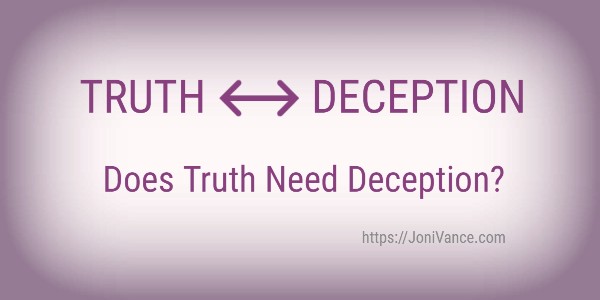
In some situations, truth definitely requires deception.
In War
One military strategy is that every real operation requires a corresponding deception.
Dudley Clarke, a British officer in World War II is one of the most well-known examples of a military mastermind of deception.
He and his colleagues created numerous deceptions such as fake divisions of soldiers to enhance the illusion of the number of troops. And to mislead the Axis powers, a planned military operation had a corresponding deceptive operation.
One example was the D-Day invasion at Normandy. Clarke and his team created a fake invasion plan to invade at Calais and leaked it. The plan deceived Hitler and helped the success of D-Day.
I’m sure the Nazis used deception as well. But I’m very grateful Allied deception helped win the war.
In Mysteries
A writer who was a master at providing misleading clues is Agatha Christie. In one case, a butler closely scrutinizes a calendar, leading the reader to believe there’s something important about the dates. In actuality, the clue is that the butler is near-sighted.
Sometimes as a writer, I get focused on sprinkling in the clues about the real culprit of the crime, but I forget that it’s just as important to create realistic, logical clues that will deceive my readers.
There’s a saying that the process of writing is its own reward. And in some cases, that had better be true because acclaim or financial gain may not accompany the work.
One of the rewards of writing is the reminder of important lessons (in writing and in life) that I need to learn or apply.
Not In Life
I’m intrigued by the mysteries of history. And I’ve certainly learned valuable lessons about life and writing when truth required deception.
But in real life, I’ve only seen damage and havoc result when deception is proclaimed as truth.
Based on my life experiences and belief system, I accept and even cherish certain things as truth.
And when I perceive dishonesty that destroys, it’s very upsetting to me.
In certain situations, the only recourse is to stand against that dishonesty. But at times, it’s counter-productive or more damaging to fight back.
How do I know when to fight? I ask God what He wants me to do. And then ask him for the courage to do what He wants — whether it is to resist deception by fighting back, or resist by staying silent and letting God fight the battle.
When do you think truth requires deception? And when does it not?
When does truth require deception? And when does it not? Share on XJoni Vance is an award-winning author of fiction, essay, and poetry. She loves mystery, history, and how God reveals Himself every day.
May God reveal the mystery of His love in your life story.

Those of us who are students of history appreciate the use of deception in helping the “good guys” to succeed. But like you, Joni, I deplore deception in our daily lives. It brings heartache and pain as it destroys relationships. Thank you for sharing.
Thank you for reading and commenting, Katherine. I’m thankful God helps each of His children see His truth.
There is so much deception in the world right now, I want to concentrate on what is true in all aspects of life. However, it is fun to figure out deception in fictional mysteries.
Thanks for reading and sharing, Jane. I’m thankful God helps me know what to do and what to believe.
Very insightful and thought provoking post, Joni! Thanks so much for sharing! Blessings to you.
Thanks, Kim. I’m grateful for your support and comments. Prayers and blessings for you, too.
Great post. Thank you, Joni.
Thanks, Tim. I’m glad the post was helpful.